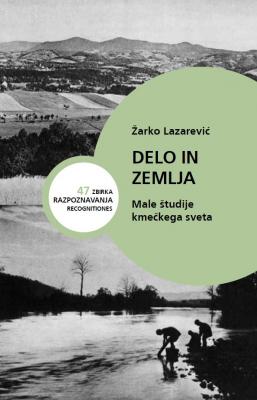Labor and Farming: Small Studies of the Peasant World
Keywords:
farmers, history, Slovenia, 19th / 20th century, agriculture, social history, economic historySynopsis
In Slovenian national ideology, peasants represented the central social class until the communist system. This could not be otherwise, because Slovenia was an agrarian society in economic and social terms until the Second World War. The anchoring of peasants and agriculture in the ideological-political imaginary was connected with structural changes from the middle of the 19th century until the Second World War. The introduction of peasant issues into the social imaginary coincided with the entry of the masses into political life, which was due to the expansion of suffrage. This changed the balance of political forces, the perception of reality, and affected the shaping of political and social agendas. All these changes were summarized in the public discourse, which must not discriminate against the peasant masses, but put them at the center of the national ideology.

Downloads
Published
Print ISSN
License

This work is licensed under a Creative Commons Attribution-NonCommercial-NoDerivatives 4.0 International License.

